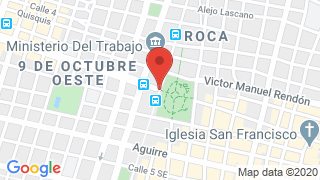Speak, guayaquil!

What is certain is that the personality of a guayaquileno reflects a unique identity, which shows in his language, the way he does business, his walk and talk....
Play like you live, said Pacho Maturana. Of course: you work, do business, love, struggle, win and lose... just like you live. Why, in the Ecuadorian imagination, does that image persist of the clever, brash, daring "Guayaco"? And how is this expressed in the commercial, economic and business dynamics of the city?
Julio Jose Prado, President of the Banking Association of Ecuador, looks to the past. "There is a huge ecosystem of small and medium enterprises related to historic agroindustrial chains: bananas, coffee, cacao, fisheries. These are followed by other clusters, like plastics for the domestic market; services and large real estate developments, and international hotel chains, which cater to business tourism!'
Alberto Acosta Burneo believes that Guayaquil "historically had more contact with the world, and sought to trade with the goods that the world valued: cacao, bananas, coffee, and other products, go out into the world from this port." In the opinion of this expert, Guayaquil's economy reflects the personality of its residents. "[The Guayaquileño] strives to get ahead on his own, individually, with personal effort. This character trait leads to success and ends up benefitting the com-munity: health care, services for the elderly and the role of the Board of Charity, for example!'
Juan Carlos Diaz Granados, Executive Director of the Guayaquil Chamber of Commerce, echoes this sentiment. "It is the country's commercial capital and primary port. Over 75% of international trade comes in through Guayaquil. This has facilitated the development of countless business activi-ties, from professional and technical services to small urban family enterprises!'
How is this talent expressed in the way that Guayaquileños have of making money? Prado describes it like this: "They move fast, and want immediate results. This is a cultural trait, but it is derived from an informality that feeds into their drive. Guayaquil has the highest rate of business start-ups, but also of failed enterprises. There is no analysis of productivity, or a business strategy" Diaz Granados complements this thought: "To be entrepreneurial is a characteristic of the Guayaquileño, always discovering opportunities in the midst of adversity." And he points out that over the past few years, despite the difficult economic situation, the proportion of Guayaquil res-idents who have started their own business is estimated at 29.6% of the population!'
"The number of enterprises started in the city in response to an opportunity (57%) is greater than those that are started out of need. This speaks of the economic, social and cultural progress that Guayaquil has experienced in recent years. Today, 1 out of every 3 dollars of domestic commerce comes from Guayaquil; we have the lowest unemployment rate, at 3.1%. This all reaffirms what Guayaquil is, the pearl of the Pacific", concludes the Executive Director of the city's Chamber of Commerce.
Nowadays, 21% of the tourists who come to Ecuador visit Guayaquil. And the city keeps vibrating, striving, struggling. On the banks of the Guayas River, with its boardwalk, with its pretentious airs of Miami as well as the Parque Centenario; its little neighborhood restaurants with Formica tables and the pork sandwich stands.
And that is the key: the new city did not discard the old one, the city of the gravelly voice of old Hector Napolitano, the city of hills, of shipyards, the Cabo Rojeirio; that humid and wet Guayaquil that Julio Jaramillo sang about and that the poet Artieda celebrated. That same city on the river, bustling, noisy and pulsing; where Jacinto Leon Zoniga, the Cookie King, walked the streets: I am selling my testament, based on tales that I invent, to build my house of cement. There is the unforgettable storyteller who, taking small nibbles here and there while selling his alfajor cookies; brought joy to the thousand and one faces of the bustling and colorful port city. Speak, Guayaquil!

Publicado en:
Publicado por:



